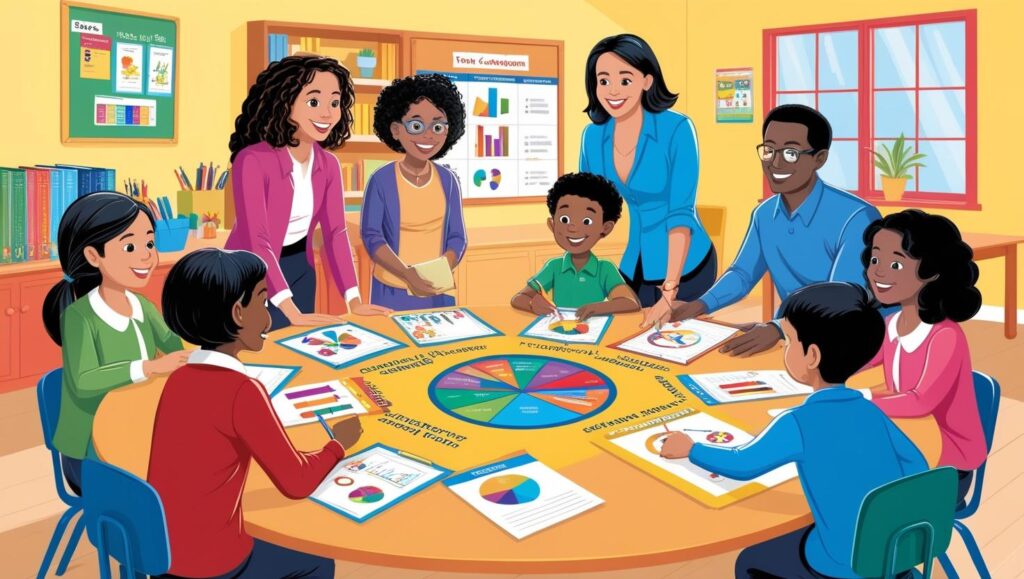Navigating the world of special education can feel overwhelming—especially for parents advocating for a child with unique learning needs. Terms like “Individualized Education Program (IEP)” may seem intimidating, but an IEP is a powerful tool designed to support your child’s educational growth and success.
This guide aims to demystify the IEP process, empower you as your child’s advocate, and offer tips for collaborating with educators to ensure your child receives the care and resources they deserve.
What is an IEP?

An Individualized Education Program, or IEP, is a legal document developed under the Individuals with Disabilities Education Act (IDEA). It outlines a specific educational plan tailored to meet the unique needs of a student with a disability.
Think of it as a blueprint for your child’s success, addressing areas such as academic goals, classroom accommodations, and other resources or services needed to create an optimal learning environment.
Every IEP is unique, reflecting your child’s strengths, challenges, and aspirations.
Who Qualifies for an IEP?
Not all kids with disabilities qualify for IEPs; there must be both a documented disability and evidence that the disability impacts their ability to succeed in a general education setting. Common conditions that might qualify include, but are not limited to:
- Autism spectrum disorders
- ADHD
- Hearing or vision impairments
- Speech and language disorders
- Learning disabilities (e.g., dyslexia)
To determine eligibility, schools conduct evaluations, which may include standardized testing, observations, or specialized assessments.

Becoming an Effective Advocate
You know your child best, and your voice is vital in shaping their educational experience. Advocating for your child during the IEP process can feel daunting, but it’s a crucial part of ensuring they receive the best possible support.
Here are some key ways to effectively advocate for your child during IEP meetings and beyond:
1. Be Prepared
Before the IEP meeting, review any educational and assessment reports. Write down your concerns, questions, and goals to share with the team. Understanding your rights under IDEA will also help you feel more confident.
2. Focus on Your Child’s Strengths
IEP meetings can sometimes center on challenges, but highlighting your child’s strengths is just as important. This can help the team craft strategies that build on their skills while addressing areas that need development.
3. Ask Questions
Don’t hesitate to ask for clarification if something isn’t clear. For example, if an acronym or term is unfamiliar, request an explanation—there’s no such thing as a “silly” question when it comes to your child’s education.
4. Stay Solution-Oriented
Approach discussions with a mindset focused on collaboration and problem-solving. If you disagree with a recommendation, calmly communicate your concerns and suggest possible alternatives.
5. Advocate for Specific Accommodations
Accommodations like extra time on tests, access to assistive technology, or a quiet room for focused learning can make a huge difference for your child. Be specific about what they need to thrive.

Collaborating with Educators
One of the most powerful ways to support your child is by forging a strong relationship with their teachers and school staff. When parents and educators work together, the results can be transformative.
Here are three tips for building collaborative, effective partnerships with educators:
1. Communicate Regularly
Keep the lines of communication open. Regular updates—whether through emails, parent-teacher conferences, or quarterly reviews—provide opportunities to stay informed about your child’s progress and challenges.
2. Respect Teachers’ Expertise
While you are the expert on your child, teachers bring valuable experience and insights to the table. Listening with an open mind fosters mutual respect and trust.
3. Stay Engaged After the IEP Meeting
An IEP is more than just a document—it’s a roadmap for your child’s education. Stay involved by monitoring progress, sharing updates with the team, and requesting revisions if necessary.
Tips for Success Beyond the IEP
While the IEP process lays the foundation for your child’s education, taking extra steps can reinforce their overall growth and well-being:
- Celebrate your child’s achievements—big and small. Positive reinforcement builds confidence and resilience.
- Connect with other parents navigating the IEP process. Local or online support groups can provide encouragement and valuable advice.
- Be patient! Progress can take time. Celebrate incremental improvements, and remember that setbacks are part of learning.
You Are Not Alone
At its heart, the IEP process is a shared commitment between families and schools to help every child thrive. Though the path may feel uncertain at times, remember that you are part of a community that deeply values inclusion, support, and your child’s success.
Whether you’re starting this process or refining an existing IEP, always remember—you are your child’s biggest champion. Your dedication is paving the way for their bright future.
If you’d like additional guidance on advocating for your child or navigating the IEP process, reach out to a local special education resource group or trusted advocacy organization. Together, we can ensure every child has access to the tools they need to shine.
External Resource Links:
- A Guide to the Individualized Education Program
This guide is designed to help teachers, parents, and others involved in the education of a child with a disability develop and carry out an IEP. - Understanding IEPs
This guide helps parents through every step of their IEP journey, offering both basic and detailed information. - Individualized Education Programs (IEPs) (for Parents)
This blog explains what an IEP is and how students who need extra help in school can benefit from special education services. - Navigating the World of IEPs: A Parent’s Guide to Success
This blog provides tips and tricks to ensure your child’s IEP is successful, starting with a positive mindset. - The Parent’s Guide to Preparing for an IEP Meeting
This blog emphasizes the importance of being well-prepared for an IEP meeting to support your child’s needs effectively.
Internal Resource Links on Bridge2Tomorrow.org:
- Scholarship Application Page
This page provides information about scholarships available to students in special education programs. It helps families access financial aid opportunities to support their child’s education. - Blog Post: “5 Tips for Navigating the IEP Process”
This blog offers practical advice for parents on how to approach IEP meetings, communicate effectively with educators, and advocate for their child’s needs. - Blog Post: “Building Strong Parent-Teacher Partnerships”
This article highlights actionable strategies to foster effective collaboration between parents and educators, ensuring the best outcomes for students.

